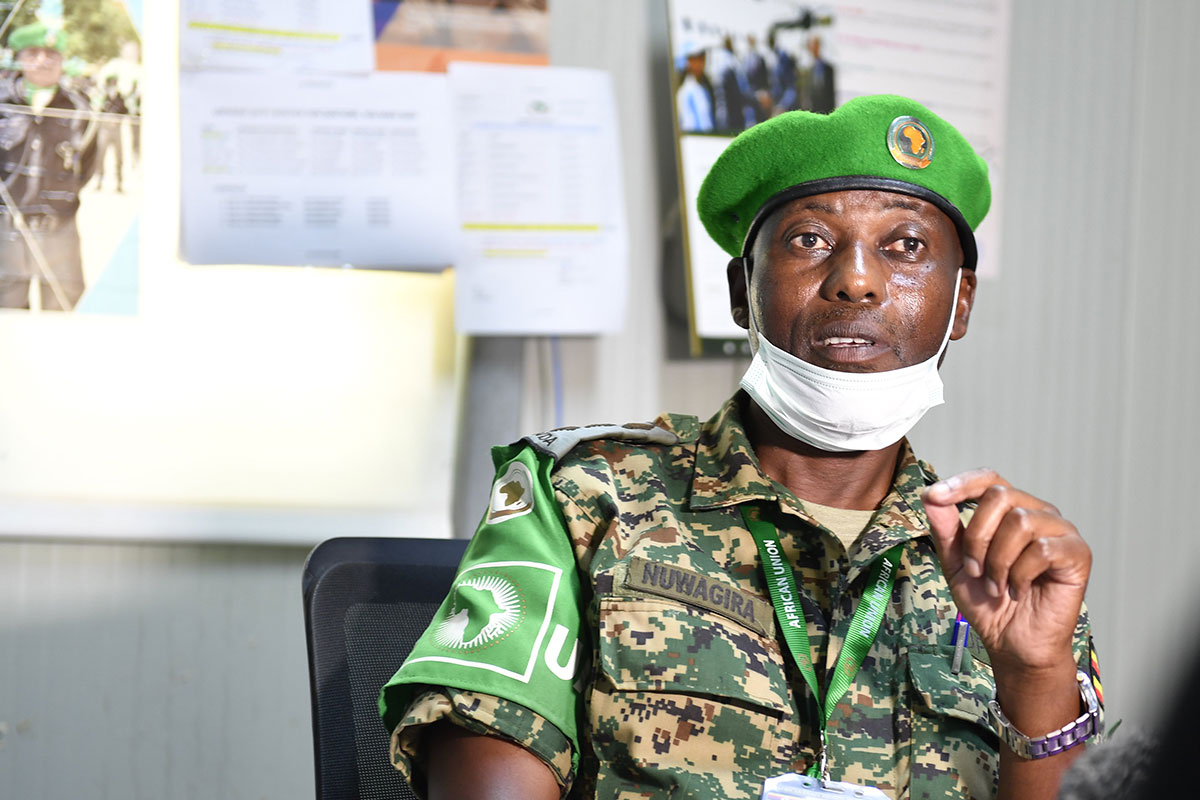The coronavirus has forced African Union and United Nations peace operations to identify which of their activities are essential and needs to be carried out, despite COVID-19, to meet their mandated responsibilities. These essential tasks include support to peace processes, patrols and activities related to protection of civilians, convoy escorts and other forms of support to humanitarian assistance, force protection, protecting key infrastructure, and support to host state institutions and local authorities.
Although AU and UN peace operations have adapted swiftly, it is not realistic to expect them to maintain the same level of effectiveness they had before the COVID-19 crisis.
Tweet
One of the priority areas for peace operations is supporting host authorities and communities. Quick Impact Projects and programmatic funding have been repurposed to help local institutions and communities prepare for and cope with the virus. These essential activities had to be adapted to minimize the risk of spreading the virus to both the people these operations are tasked to protect and to the peacekeepers themselves.
Most civilian and uniformed headquarter staff are working from their homes or mission accommodations, with approximately 10% of international civilian staff now working from outside their mission area. This means that most of the planning and support work is now being done electronically. However, not everything can be done remotely. The great asset of having field staff is that they can drive to a location, track down an important interlocutor and obtain information or come to an agreement with them on what actions will be taken to, for instance, protect civilians. Although AU and UN peace operations have adapted swiftly, and are carrying out essential operations, it is not realistic to expect these operations to maintain the same level of effectiveness they had before the COVID-19 crisis.
Peace operations also have to manage a number of other challenges. In some countries there are fears, created by rumours or active disinformation campaigns, that foreign peacekeepers are responsible for spreading the virus. In South Sudan, for instance, government forces have put up checkpoints outside UN compounds in several locations to stop or reduce UN movements. These actions have also impacted on the approximately hundred and fifty thousand people sheltering in UN protection of civilian camps. Similar fears and rumour mongering are affecting operations in CAR, DRC, Mali and Somalia. UN radio stations like Radio Guira in Central African Republic (CAR), Radio Okapi in the DRC, Radio Mikado in Mali and Radio Miraya in South Sudan are helping to share accurate information about the coronavirus in local languages.
In order to reduce risk to host populations and peacekeepers alike, all rotations has been frozen until 30 June. Among the approximately 80,000 AU and UN soldiers and police officers currently deployed in Africa, approximately 40% are due to be rotated home and to be replaced in the next few months. There will thus be significant demand on the available airlift capacity and logistical personnel. All new troops rotating into missions will go into 14 days quarantine, which poses another logistical challenge. It also means they cannot be operational during this period, which increases the workload on the rest of the peacekeepers.
The most severe disruption to peace operations is likely to be caused by another side-effect of the COVID-19 crisis, a global economic recession. The IMF has changed their forecast for 2019 from a 3.3% growth to a 3% contraction in the global economy. The 2008 global financial crisis has already contracted UN peacekeeping with approximately 20%, and the COVID-19 crisis may reduce it with a further 30 to 50%.
The global economic recession caused by COVID-19 may contract peace operations by 30 to 50% over the next 24 months.
Tweet
In the medium-term the African Union and United Nations may thus be faced with a situation 12 to 18 months from now where peace operations have significantly less capacity than they do today. It is unlikely that the risk to civilians in these situations will change significantly for the better in the short to medium term. The more likely scenario is that the effects of the coronavirus, coupled with other factors such as climate change, will increase instability and risk. The most critical risk is stalled political processes. The response to the UN Secretary-General’s call for a global ceasefire has been mixed, and in some cases, fighting has increased. In others, COVID-19 is the new shared enemy that is creating new alliances.
Thus far Africa, where the bulk of peace operations are deployed, has been spared the brunt of the crisis, but this is likely to change in the medium term. Most peace operations have demonstrated remarkable resilience in the way they have coped with, and adapted to the crisis. Some of the new innovations and practices that have emerged in this process are specific to the virus and will change over time in response to the severity of the risk that the virus poses. Others are likely to be more lasting, including a more essential-scale approach to mandate implementation and a more adaptive approach to planning and mission management. The most dramatic change, however, is likely to be a significant reduction in funding and the availability of troops over the medium term as peace operations contracts in lockstep with the global economy.
Cedric de Coning is a senior research fellow with the Norwegian Institute of International Affairs (NUPI), senior advisor for ACCORD, and the coordinator of the Effectiveness of Peace Operations Network (EPON). He tweets at @CedricdeConing.
Based a policy brief published by NUPI under the title: COVID-19 will change the way the UN conducts peacekeeping operations in the future, COVID-19 Brief 7/2020. Oslo: Norwegian Institute of International Affairs.

